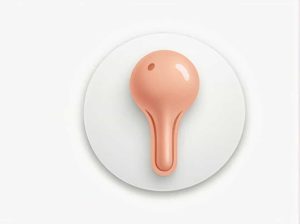The nephron is the functional unit of the kidney responsible for filtering blood and producing urine. Each kidney contains millions of nephrons which play a crucial role in maintaining fluid balance removing waste and regulating electrolyte levels.
One of the most essential components of a nephron is the renal corpuscle which serves as the filtration site for blood. In this topic we will explore the structure function and significance of the renal corpuscle within the nephron.
What Is a Nephron?
A nephron is a microscopic structure in the kidneys that performs blood filtration reabsorption and excretion. Each nephron consists of two main parts:
- Renal Corpuscle – The initial filtering unit.
- Renal Tubule – A series of tubes that modify the filtrate and form urine.
The renal corpuscle plays a primary role in filtration while the tubules help in selective reabsorption and secretion.
Structure of the Renal Corpuscle
The renal corpuscle is the first part of the nephron where blood filtration occurs. It consists of two major components:
1. Glomerulus – A Network of Capillaries
The glomerulus is a ball of tiny blood capillaries where filtration takes place. These capillaries are highly porous allowing water ions and small molecules to pass through while retaining larger substances like proteins and blood cells.
- Function: Acts as a filter for blood separating waste and excess substances.
- Composition: Made up of capillaries lined with fenestrated endothelial cells (cells with small pores).
- Blood Supply: Receives blood from the afferent arteriole and drains into the efferent arteriole.
2. Bowman’s Capsule – The Filtration Chamber
Surrounding the glomerulus is Bowman’s capsule a double-layered sac that collects the filtrate from the blood.
- Inner Layer (Visceral Layer): Contains podocytes specialized cells with finger-like extensions that create filtration slits.
- Outer Layer (Parietal Layer): Forms the outer structure of the capsule.
- Function: Receives filtered fluid and directs it to the proximal tubule for further processing.
How Does Filtration Occur in the Renal Corpuscle?
Filtration in the renal corpuscle is a passive process driven by blood pressure. The process occurs through three layers:
1. Endothelial Cells of the Glomerular Capillaries
These cells have tiny pores (fenestrations) that allow water ions and small molecules to pass while blocking large proteins and blood cells.
2. Basement Membrane
A gel-like matrix that acts as a secondary filter preventing proteins from passing through.
3. Podocytes and Filtration Slits
Podocytes in Bowman’s capsule have interdigitating foot processes forming filtration slits that further regulate what enters the nephron.
This triple-layer filtration system ensures that waste products excess ions and water enter the nephron while retaining essential proteins and cells in the bloodstream.
What Is Filtered in the Renal Corpuscle?
The filtrate that passes through the renal corpuscle contains:
✅ Water
✅ Glucose
✅ Electrolytes (sodium potassium chloride calcium)
✅ Urea and Creatinine (waste products)
Substances that are too large to be filtered:
❌ Red blood cells
❌ White blood cells
❌ Plasma proteins (albumin globulins fibrinogen)
Significance of the Renal Corpuscle in Kidney Function
1. First Step in Urine Formation
The renal corpuscle initiates the urine formation process by filtering blood plasma. The filtrate then moves into the tubules for further processing.
2. Regulation of Blood Pressure
The glomerulus plays a role in blood pressure regulation through the afferent and efferent arterioles. If blood pressure drops the kidneys release renin triggering mechanisms to increase pressure.
3. Removal of Waste and Toxins
By filtering the blood the renal corpuscle helps remove metabolic waste products like urea creatinine and excess ions.
4. Fluid and Electrolyte Balance
The initial filtration ensures that only necessary amounts of water and electrolytes enter the nephron preventing dehydration or excessive retention of fluids.
Factors That Affect Renal Corpuscle Function
1. Blood Pressure
Filtration depends on glomerular blood pressure. Low blood pressure reduces filtration while high blood pressure can damage the glomerular capillaries.
2. Diabetes and Kidney Disease
High blood sugar levels can damage the filtration membrane leading to proteinuria (protein in urine) and kidney dysfunction.
3. Infections and Inflammation
Conditions like glomerulonephritis cause inflammation of the glomerulus reducing filtration efficiency.
4. Medications and Toxins
Certain drugs (e.g. NSAIDs antibiotics) can impair kidney function by damaging glomerular cells.
Comparison: Renal Corpuscle vs. Renal Tubule
| Feature | Renal Corpuscle | Renal Tubule |
|---|---|---|
| Function | Filtration of blood | Modification of filtrate |
| Location | Kidney cortex | Extends from cortex to medulla |
| Main Components | Glomerulus Bowman’s capsule | Proximal tubule Loop of Henle Distal tubule |
| Type of Transport | Passive (filtration) | Active and passive (reabsorption secretion) |
Both structures work together to filter modify and concentrate urine ensuring optimal kidney function.
Common Disorders Affecting the Renal Corpuscle
1. Glomerulonephritis
Inflammation of the glomerulus leading to reduced filtration and possible kidney failure.
Symptoms:
- Blood in urine (hematuria)
- Swelling (edema)
- High blood pressure
2. Diabetic Nephropathy
Long-term diabetes can damage glomerular capillaries leading to protein leakage in urine.
Prevention:
- Control blood sugar levels
- Maintain healthy blood pressure
- Regular kidney function tests
3. Hypertension-Related Kidney Damage
High blood pressure can cause thickening of glomerular vessels reducing filtration efficiency.
Management:
- Reduce salt intake
- Use prescribed antihypertensive drugs
- Monitor kidney function regularly
The renal corpuscle is a vital component of the nephron responsible for blood filtration. It consists of the glomerulus which filters blood and Bowman’s capsule which collects the filtrate.
This first step in urine formation is crucial for removing waste maintaining blood pressure and regulating fluid balance. Any damage to the renal corpuscle can lead to kidney diseases affecting overall health.
By understanding its structure function and common disorders we can appreciate the importance of kidney health and proper hydration in maintaining overall well-being.



